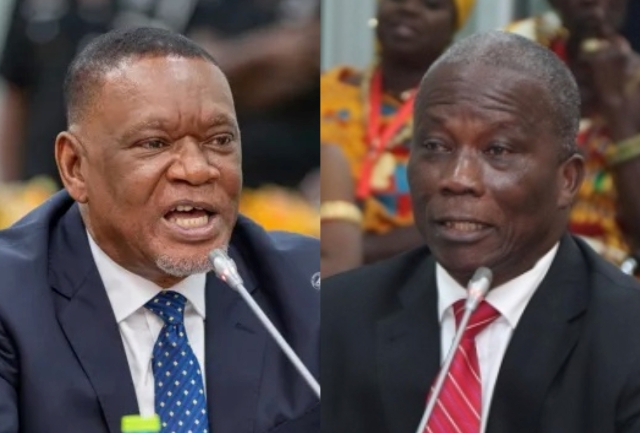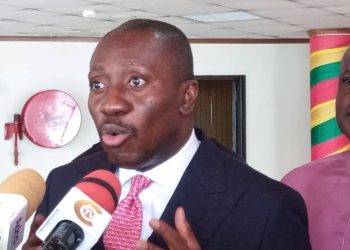Two nominees to the Supreme Court, Justices Philip Bright Mensah and Senyo Dzamefe, have affirmed their commitment to the constitutional two-term limit for Ghana’s presidency, amid growing political tension over allegations of a covert third-term agenda by President John Dramani Mahama.
Their remarks came during their individual vetting sessions before Parliament’s Appointments Committee this week, following President Mahama’s April 30, 2025, nomination of seven new justices to the apex court — a move that has sparked intense public debate and political suspicion.
Appearing before the Committee on Tuesday, June 17, Justice Philip Bright Mensah unequivocally stated that the constitutional provision limiting a president to two terms is unambiguous.
“There is no ambiguity as to the number of terms an elected President can serve. The law is clear, and I will go by what the Constitution provides,” he stated.
He was responding to questions on Article 66(1) of the 1992 Constitution, which stipulates that a person elected as President shall hold office for a term of four years and shall not serve more than two terms.
Justice Mensah emphasized that the law does not lend itself to reinterpretation to permit more than two terms.
“I do not think I have any authority to speak in contravention of this constitutional provision, nor would I attempt to. My position is clear: the law is clear, and we should maintain it as it is,” he added.
His firm stance is expected to calm fears raised by the opposition party who argue that the elevation of seven new justices may be laying the groundwork for altering entrenched provisions of the Constitution, particularly those governing presidential tenure.
Also affirming his position on the matter was Justice Senyo Dzamefe, who appeared before the Committee on Monday, June 16. When asked by Suame MP John Darko whether Article 66(2) — which limits a person to two presidential terms — was subject to interpretation, Justice Dzamefe responded:
“Mr. Chairman, the honourable member referred to the constitution, and that is what the constitution says. So I can’t have anything against what is in the constitution.”
His remarks reinforced the prevailing constitutional position and echoed the sentiments expressed by his colleague nominee.
The nominees’ remarks come on the heels of strong allegations from Minority Leader and MP for Effutu, Alexander Afenyo-Markin, who has publicly accused President Mahama and the ruling National Democratic Congress (NDC) of pushing a concealed third-term agenda.
Speaking in an earlier media engagement on May 1, 2025, Afenyo-Markin claimed:
“It is obvious that the bold attempts by the President to nominate, out of the blue, seven judges to the Supreme Court are the first major attempt at all that they have rehearsed — a third-term agenda.
“All that the NDC is doing is through the advice of the hawks of the party to set a third-term agenda for its leadership,” he alleged.
President Mahama’s nominations, made in accordance with Article 144(2) of the Constitution, involved the elevation of seven Justices of the Court of Appeal to the Supreme Court. The Presidency has justified the move as necessary to strengthen the apex court with seasoned judicial minds amid increasing constitutional and governance challenges.
Despite the suspicions and political rhetoric, legal experts have pointed out that entrenched provisions such as Article 66 on presidential term limits cannot be amended by judicial interpretation alone. Any attempt to alter such clauses would require a national referendum under Article 290 of the Constitution.
Article 66(1) of the 1992 Constitution provides: “A person elected as President shall hold office for a term of four years. A person shall not be elected to hold office as President of Ghana for more than two terms.”
Justices Mensah and Dzamefe’s firm positions may go a long way in assuring the citizenry that the integrity of Ghana’s constitutional term limits remains intact — at least within the walls of the country’s highest court.




















